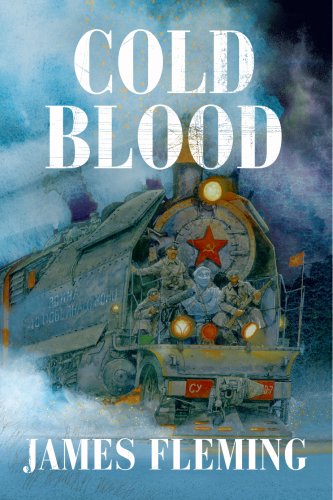Cold Blood
As the Bolsheviks seize power, Charlie Doig, half-Scot, half-Russian, sets off in pursuit of personal vengeance. Acquiring an armoured train and a motley collection of followers, not all of whom are to be trusted, naturally enough, he heads east, and learns that there is huge quantity of gold bullion at Kazan, a city being fought over by Reds, Whites and the Czech Legion. Charlie determines that he will not only kill the villainous People’s Commissar Glebov, but carry off the gold as well.
Is Mr. Fleming writing a serious thriller or a send-up of the genre? Cold Blood occupies an uneasy boundary between the two, and doesn’t quite work as either. We are informed that Mr. Fleming is a nephew of Ian, and his previous work has been extensively and favourably reviewed, but I found myself wondering why, although the book frequently reads like a screenplay for a modern Bond film – all action sequences and dashing about and very little to hold things together. For me, a serious thriller needs to convey a strong sense of ‘this really could happen’, but Cold Blood doesn’t do that. In the comic thriller/historical sphere, Mr. Fleming faces the awesome precedent of Flashman, which, despite all the absurdities and the suspension of disbelief required as our anti-hero manages to get involved in every war of the Victorian age, remains strongly rooted in reality as well as very funny indeed. The reader is also with Flashman all the way. There are moments of good muscular writing in Cold Blood, and the chaos and anarchy of Revolutionary Russia is well-conveyed, but at times I lost track of what was going on. And did I care about Charlie Doig and his quest? No, I didn’t.










